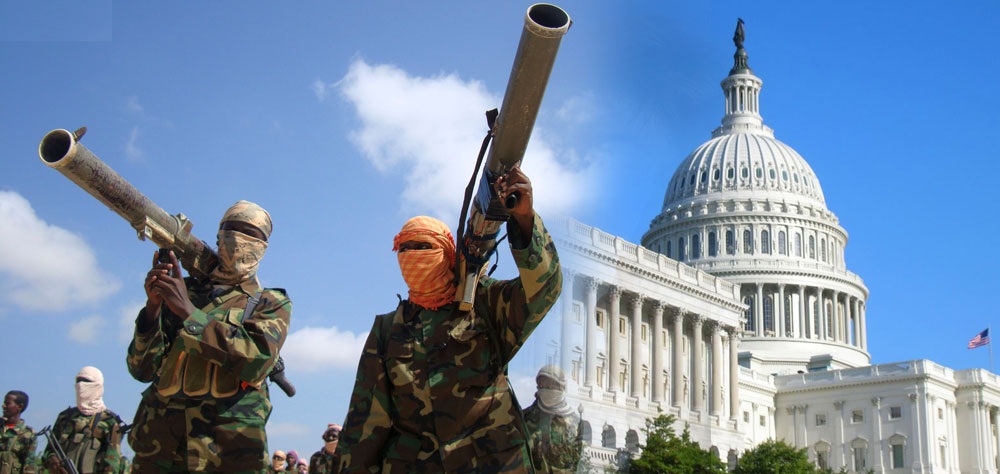
RNA - As part of the ongoing radical rhetoric of the administration of the new US President Donald Trump against Iran, the national security advisor Michael Flynn at the White House has accused Iran of being the leading pro-terrorism state, being engaged in violent actions, and supporting such violence, which, he claimed, destabilized the West Asia region.
Reacting to Iran’s test of its newest missile, Flynn in similar remarks early in February had maintained that the international community should very clearly respond to the Iranian destabilizing behavior in the region.
With these remarks in mind, it appears that with shedding light on the major flash points of the crisis in West Asia and testing the degree of correspondence of the US performance in the region with its claims made by its officials we can find obvious answers to these questions: What country is the destabilizing one in the region? And why have all of the US governments after the Iranian Islamic Revolution of 1979 unanimously pointed the finger at Tehran when it comes to instability in the region?
The US-fuelled crises in the region
At the present time, the most significant crisis-making factor in West Asia is existence of terror groups with an ostensibly religious ideologies such as al-Qaeda, Taliban, ISIS, and a couple of others. They sow hate and unleash licentious violence as a result of an extraordinarily superficial and totally incorrect interpretation of Islam, imposing domestic conflicts on a considerable number of the West Asian Muslim countries.
Since the 9/11 attacks, the US has been claiming to fight such radical groups, but a looking back at the history of rise of Taliban, al-Qaeda, and ISIS very apparently discloses the indirect and direct role of the different American administrations in forging, training, equipping, and organizing these extremist groups. For instance, the US formed Taliban– which ushered in emergence of other radical groups in later decades– in the 1980s in Afghanistan under a couple of justifications. First reason was that Washington wanted the militant group to fight against the Red Army of the Soviet Union which at the time invaded Afghanistan. Another reason for nurturing Taliban by the US was that the Americans wanted the militant group to undermine the Iranian influence in the neighboring Afghanistan as they saw some Afghan leaders like Burhanuddin Rabbani, the former president of the Islamic State of Afghanistan, and Ahmad Shah Massoud, a powerful military commander at the time, were Tajikis with lingual and cultural bonds to Iran. Moreover, the US after invasion of Iraq in 2003 dissolved the country’s army and national security council, having a direct hand in power vacuum that paved the way for ISIS rise and its boost of role.
Still another cause of conflict of ideas and rifts and source of eruption of several wars and bloodsheds in recent decades, precisely from the Second World War up to now, has been the Israeli-Palestinian conflicts on the Palestine's lands occupation by the Israelis. Occupation of the Palestinian territories by Tel Aviv and the crimes against the Palestinian and Lebanese people within these decades have been emboldened by the unconditional and wide-ranging supports of the American administrations.
The very latest part of the ongoing Palestinian tragedies is related to the new US government’s attitude towards the illegal Israeli settlement projects, which are widely condemned by the UN members as well as the Security Council. Trump immediately after election as president took his stance on the issue, saying that he will relocate his country’s embassy from Tel Aviv to Al-Quds (Jerusalem). Such a measure not only can fuel the region’s crisis but also in practice will mean moving away from the initiative of forming an independent Palestinian state.
Another part of destabilization and terrorism growth in the region must be blamed on the US' direct role in waging wars and military and political interventions in domestic affairs of the regional nations to eliminate the hurdles ahead of Washington’s expansion of toehold and chasing of its interests. Military occupation of Afghanistan and Iraq under the excuse of battling terrorism not only declined to bring forth democracy and development to these nations as the Americans leaders pledged but also led to massive civilian massacres and displacement of millions. The war made these two countries be bastions of extremism, sending them to the brink of collapse.
Another crisis-making factor is outbreak of arms races while the region is hit by border and territorial disputes and existence of conflicting ideological orders between the region’s countries. Here again, it should be admitted that Washington’s role exceeds the role of other actors influencing the region. Washington struggles to make the fullest profits out of the petrodollars pouring into the Persian Gulf Arab states' banks. It propagates Iranophobia in a bid to pave the way for getting toeholds, making them dependent militarily, economically, and politically, and signing costly security pacts with them. All these measures have turned West Asia into a powder keg, in which everything from future optimism to security are challenged.
Based on what was said, it can be concluded that the US has dealt selectively with work for calm in the region, fight against terrorism, and the destabilizing factors. As it at the time of the Cold War highlighted the dangers of spread of communism to pursue its interests and spread it sway, it now does the same thing with terrorism risks to achieve the same goals. For example, the US on the one hand labels Iran’s support for the legitimate Syrian and Iraqi governments in their fight against ISIS and other terrorist groups as a destabilizing measure but on the other hand defends as a stabilizing moves the Saudi-led anti-Yemeni military aggression that led to civilians massacres and war crimes according to the international human rights organizations, as at the same time Washington brands similarly the Saudi Arabian intervention in Bahrain to repress the peaceful anti-government protests of the Bahraini people.
847/940